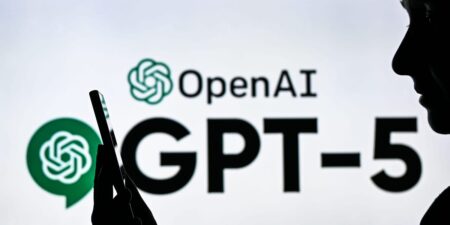- Paul Tudor Jones warned AI could cause mass unemployment and even threaten the human race.
- The billionaire trader said the technology has great potential but poses risks for safety and stability.
- AI could help equalize education, Jones said, adding that it ought to be regulated.
Artificial intelligence promises to solve some of the world’s thorniest problems — but it could also spark mass unemployment and even eradicate the human race, Paul Tudor Jones warned.
“This is obviously the most disruptive technology in the history of mankind,” the billionaire trader told “Bloomberg Open Interest” on Wednesday.
The Tudor Investment Corporation founder turned to a decades-old sci-fi series to explain the existential threat posed by AI.
“There was a great ‘Twilight Zone’ episode where aliens came down to Earth and they hand this book, it says ‘To Serve Man,’ Jones said. “And everyone goes, ‘Hooray! They’re going to save humanity, it’s a humanitarian guide.’ And it turns out to be a cookbook.”
“The downside of AI is that we’ve been served,” he added, pointing to Tesla CEO Elon Musk warning on a February podcast that there’s a 20% chance of AI wiping out humanity. That risk should “set off alarm bells throughout the world,” Jones continued.
He also highlighted Anthropic CEO Dario Amodei’s suggestion that US unemployment could surge from around 4% to between 10% and 20% within the next five years as AI displaces legions of white-collar workers. Jones called that a “massive stability issue” on top of safety concerns about the nascent tech.
AI is already reshaping industries such as law, consulting, banking, and the media by automating tasks and producing faster and better work than humans in some cases.
Jones singled out education as one area where AI could be a force for good. The advent of virtual tutors who can help students with any subject should mean there’s “no excuse for a low-income kid not to have the greatest education.”
He cautioned that Trump’s proposed “One Big Beautiful Bill” includes a “moratorium on AI regulation” that could allow the risks it poses to become reality.
Read the full article here
















